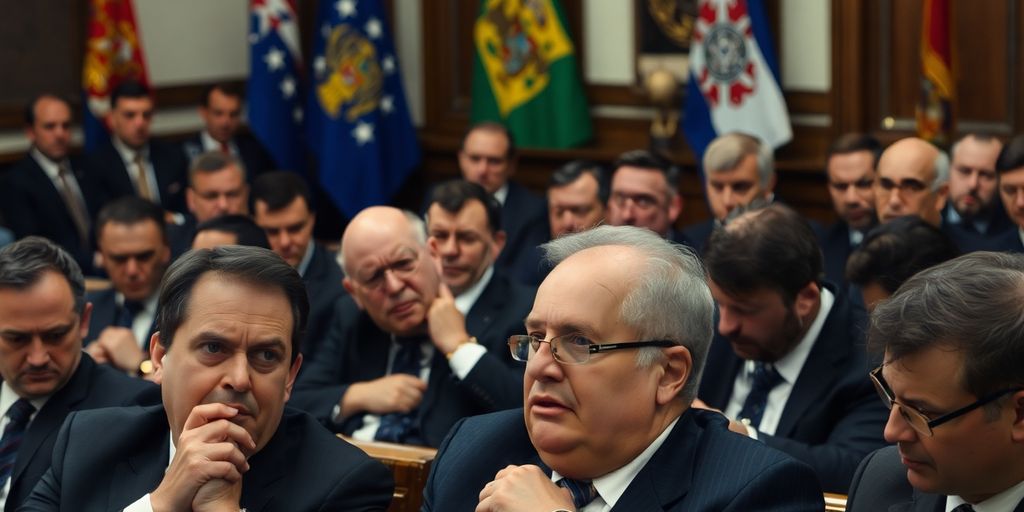Lawmakers in Bosnia’s Serb Republic have taken a significant step back from the country’s European Union accession efforts. In an emergency session, they ordered Serb representatives in state institutions to obstruct any decision-making and legal changes necessary for Bosnia’s integration into the EU. This move comes in response to the ongoing trial of Milorad Dodik, the region’s leader, who is facing prosecution for defying the decisions of international peace envoy Christian Schmidt.
Key Takeaways
- Bosnia’s Serb lawmakers have halted EU accession efforts, citing political motivations behind the trial of their leader.
- The EU and several Western embassies condemned this action as a threat to Bosnia’s constitutional order.
- The situation raises concerns about the future of Bosnia’s EU membership aspirations.
Background of the Situation
The Serb Republic’s parliament convened to address the implications of Dodik’s trial, which they claim is politically motivated and based on what they consider illegal decisions made by Schmidt. The lawmakers argue that the court and prosecution are unconstitutional, as they were established by the peace envoy rather than through the Dayton Treaty, which ended the Bosnian War.
International Response
The EU delegation in Bosnia and Herzegovina, along with the embassies of the United States, United Kingdom, France, Germany, and Italy, issued a joint statement condemning the actions of the Serb parliament. They described the blockade as a serious threat to the constitutional order of Bosnia, emphasizing that a return to political obstruction could have detrimental effects on the citizens, many of whom support EU accession.
Schmidt’s Stance
Christian Schmidt, the international high representative, expressed deep concern over the politicization of the court case. He stated that he would take necessary measures to uphold the peace agreement and ensure that all individuals in Bosnia adhere to the law. Schmidt emphasized that no one is above the law and that everyone has the right to a fair trial while also being obligated to comply with court decisions.
The Broader Implications
Dodik, who has been pro-Russian and has sought to distance the Serb Republic from Bosnia, had previously paused his separatist ambitions following the onset of the war in Ukraine. The recent actions by the Serb lawmakers could jeopardize the progress made towards EU membership, which had gained momentum last year when EU leaders agreed to open negotiations contingent on Bosnia meeting specific membership criteria.
Conclusion
The decision by Bosnia’s Serb lawmakers to halt EU accession efforts marks a critical juncture in the country’s political landscape. As tensions rise and international scrutiny increases, the future of Bosnia’s integration into the European Union hangs in the balance, with significant implications for its citizens and regional stability.


![A Nation Mourns: Thousands Bid Farewell to Folk Legend Halid Beslic Thousands mourn folk legend [Halid Beslic] at his funeral.](https://balkaneu.com/wp-content/uploads/2025/10/d4a6f2dfthumbnail-218x150.jpeg)



